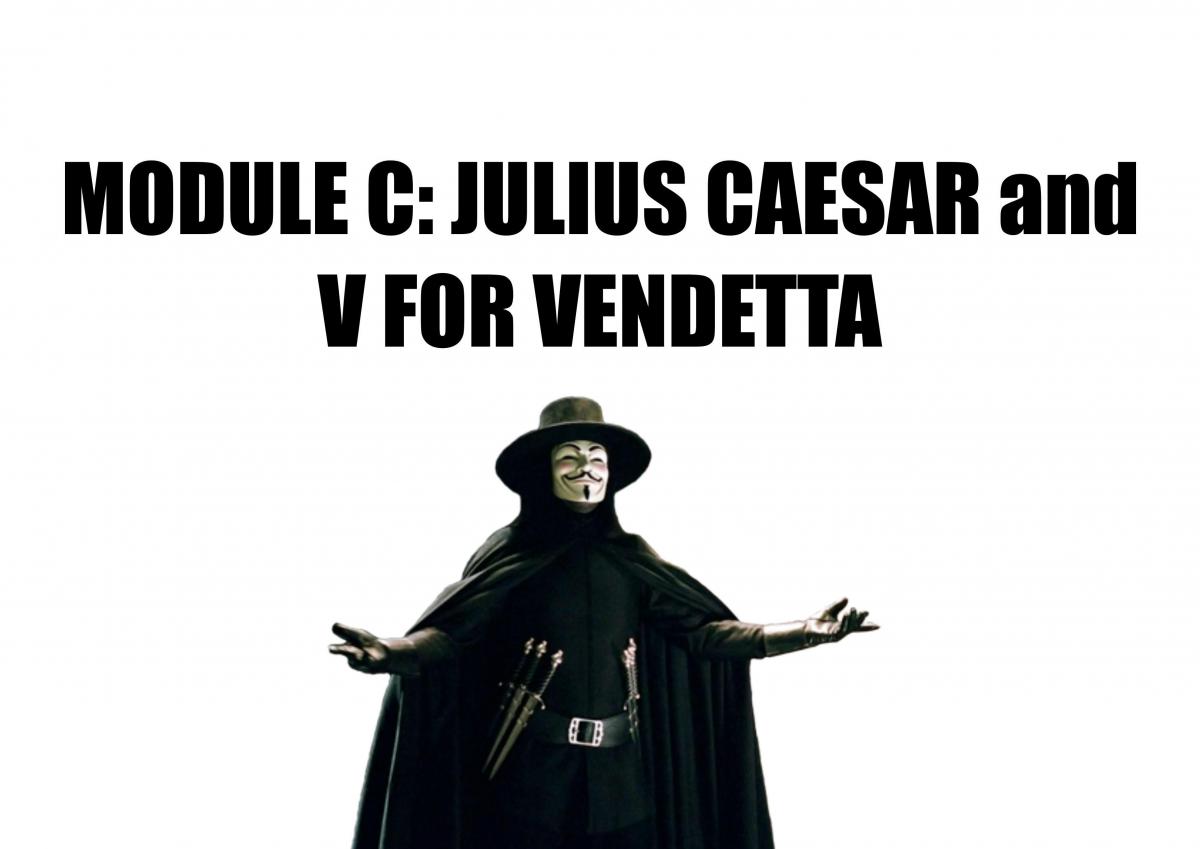Find
Search for over 200,000 study notes and past assignments!
Swap
Download study resources by swapping your own or buying Exchange Credits.
Study
Study from your library anywhere, anytime.
V for Vendetta and Caesar - Module
English (Advanced)
5 Pages • Topic Notes • Year: Pre-2021
If you wish to do well in this particular module you must have multiple answers for each of these three questions and lots of quotes to back up your points. Of course, this is also the module where questions of timelessness and the human condition are the most relevant. When studying your texts, consider how much the outlook of the people have changed and most notably, what concerns seem to go on throughout time. As a case study, I’ve decided to compare William Shakespeare’s Julius Caesar and Niccolo Machiavelli’s The Prince. The time period in question is between 1513 and 1599. Before diving into the contextual analysis, first consider the time frame here. The people who were living in 1513 would be the great grandparents of those living in 1599. How much do you have in common with your grandparents? Add one more generation. Machiavelli was living in Italy around the time when the Roman Catholic Church was deeply influential and the hypocrisy of portions of the clergy were very well known. This was also just over half a century after Johannes Gutenberg had the bright idea of turning a wine making press into a book printing press. Monks and scribes would rejoice! No more would they have to painstakingly copy books by hand, now they could send the books to the printer and have dozens of copies made. The price of books plummeted! As a consequence of this, more people across Europe started reading a greater variety of books. The best comparison we have for this sort of an information explosion is the modern internet.
This document is 5 Exchange Credits
More about this document:
|
|
This document has been hand checkedEvery document on Thinkswap has been carefully hand checked to make sure it's correctly described and categorised. No more browsing through piles of irrelevant study resources. |
|
|
These are Topic NotesTopic Notes typically cover a topic (or several topics) in detail. They are not expected to cover all the topics in the course and are often less than 20 pages in length. |
|
|
What are Exchange Credits?Exchange Credits represent the worth of each document on Thinkswap. In exchange for uploading documents you will receive Exchange Credits. These credits can then be used to download other documents for free. |
|
|
Satisfaction GuaranteeWe want you to be satisfied with your learning, that’s why all documents on Thinkswap are covered by our Satisfaction Guarantee. If a document is not of an acceptable quality or the document was incorrectly described or categorised, we will provide a full refund of Exchange Credits so that you can get another document. For more information please read Thinkswap's Satisfaction Guarantee. |

Studying with Academic Integrity
Studying from past student work is an amazing way to learn and research, however you must always act with academic integrity.
This document is the prior work of another student. Thinkswap has partnered with Turnitin to ensure students cannot copy directly from our resources. Understand how to responsibly use this work by visiting ‘Using Thinkswap resources correctly’.
Browse HSC Subjects


